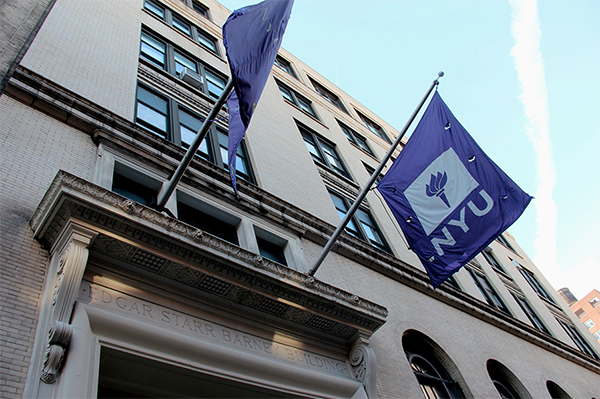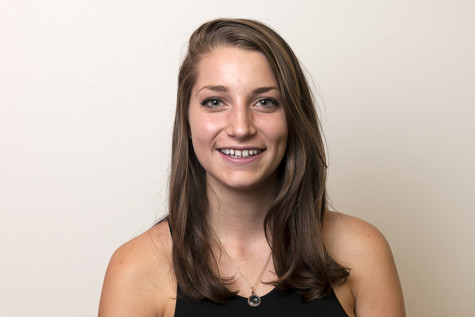Among the many changes reshaping university life as a result of the COVID-19 pandemic, professors, now an invisible labor force, work to restructure their courses to accommodate remote instruction.
While some lecture-style classes have remained fairly consistent, professors who teach more hands-on courses are grappling with the limits that on-screen learning puts on their abilities to teach their material effectively.
Steinhardt Professor Sean Fuller has adapted to these changes by reorganizing the structure of his Design Studio for Non-Majors course within the Studio Art major.
The studio course focuses on book art and teaches students about the production of books, from interior and exterior design to binding techniques. Without the physical studio space and the materials it provides, digital learning has paved an unprecedented pathway for the course to continue.
“Now, without access to physical materials, many students have been able to only make digital books,” Fuller told WSN in an email. “This has changed the focus of the class to a more typical book design class where the focus is on layout and cover design.”
With the shift from physical bookmaking to more commonplace book design elements, Fuller has had to cancel field trips and demonstrations that would have contributed to students’ understanding of course material.
One of the cancelled trips was a visit to the Museum of Modern Art the class had planned. In-class letterpress and silkscreen workshops had to be reconsidered as well.
Studio-based classes haven’t been alone in adjusting to an online environment that falls short of course needs.
CAS Professor Kenneth Paulsen focuses his Journalistic Inquiry course on in-the-field interviewing and reporting, a task impossible to accomplish from home. To compensate for this and support his students better, he’s permitted more creativity with how students approach assignments.
“One example is increasing reliance on social media for information and sources,” Paulsen said. “That’s not a shortcut — that’s how information is being shared and where news is being made. Social media gives us a window into others’ lives like nothing else; it’s indispensable when researched responsibly.”
Despite the change in how students collect information for class assignments, Paulsen believes the switch in course environment ought to be approached in the same day-to-day nature real-life journalists took on in the midst of the pandemic.
“A constant theme for our class: Journalism is always about adapting and changing your plans, and responding to the unexpected — even in a pandemic,” Paulsen said.
This mission to maintain a static environment amidst the transition in Paulsen’s class is shared by several other professors.
Steinhardt Professor Ben Kafka is teaching two courses within the Media, Culture and Communications department this semester — Psychoanalysis: Desire and Culture and Psychic Life of Media. His goal has been to maintain as much normalcy as possible across both courses.
“For me this meant no pre-recorded lectures, no breakout rooms, none of the other bells and whistles offered by Zoom,” he told WSN in an email. “I think this has worked out alright with the smaller course, but it hasn’t really worked out at all with the larger one.”
In addition to teaching at the university, many professors also work in their respective fields outside of the classroom.
Professor Kafka is a psychoanalyst in addition to teaching two courses at NYU and mentoring students on thesis work. Rather than meeting with his patients in person, he has been conducting sessions over the phone.
Similarly, Professor Fuller has made changes to his outside job, halting the opening of a new art bookstore in Berlin and figuring out logistics for his wife’s pregnancy.
“Since the coronavirus outbreak, the situation in Germany is similar to New York with most businesses and nonessential activities halted,” he said. “Even though this project is on pause, we had the added stress of figuring out where my wife would give birth during the pandemic.”
Although there are many changes reshaping his working life, he remains calm about the future and has taken extra precautions since the birth of his son.
Across all professors’ commentary regarding remote instruction, it is evident that while the situation may not be desirable, they are adapting, whether that be by restructuring their courses to meet academic needs or making minimal changes to their lecture styles to maintain a sense of normalcy for their students and themselves.
Email Kate Slate at [email protected].
























































































































































